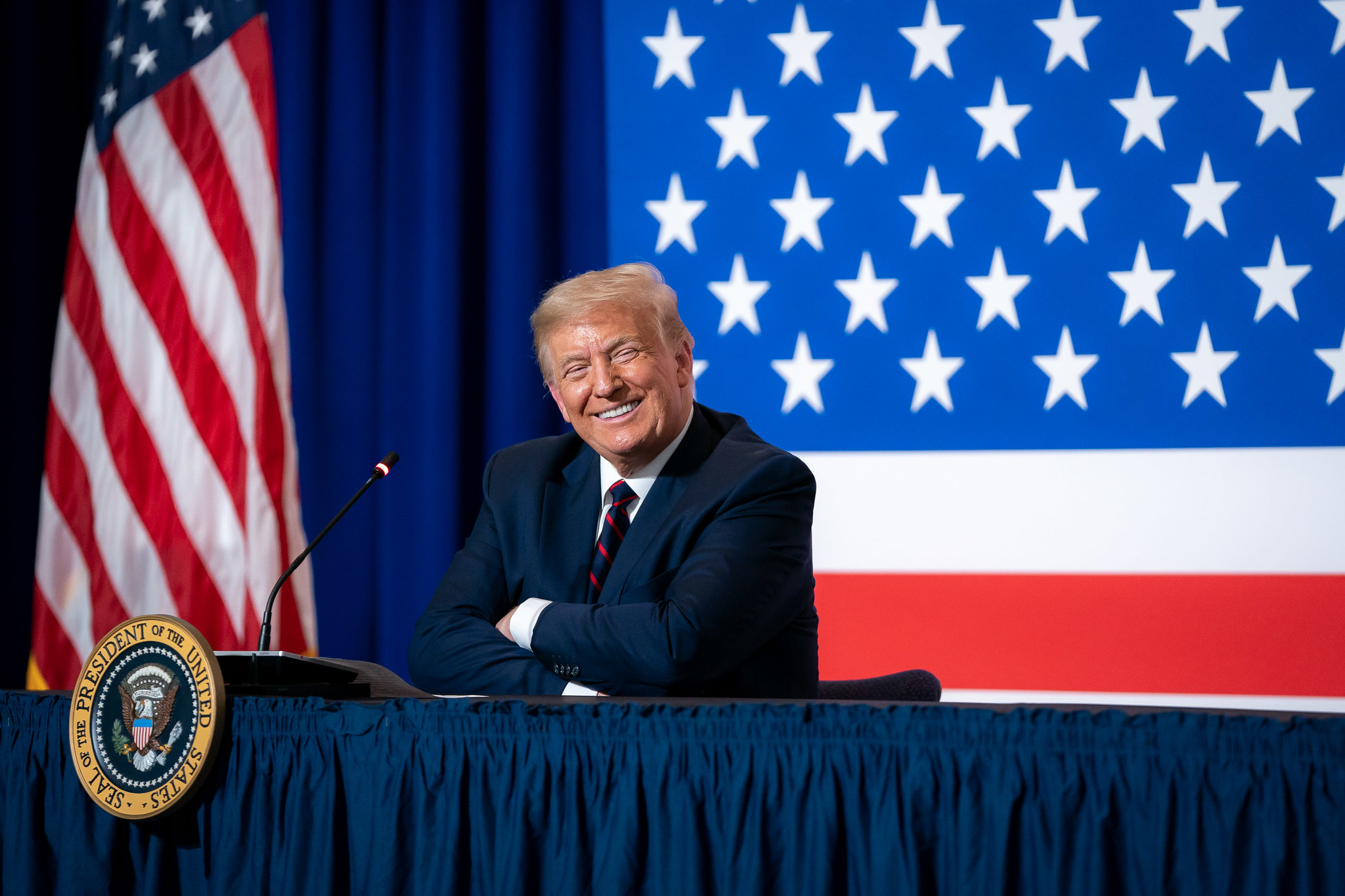We are now less than 90 days until the 2020 election and it continues to look like Donald Trump will lose—perhaps badly. Even the president seems to know that at some level, which is why he’s refusing to commit to abide by the results, lying about mail-in ballots, and even suggesting that the whole thing be delayed.
Last spring the editors of the Washington Monthly magazine devoted an entire issue to exploring what would happen if Trump wins. It was an important cautionary tale. But it is equally important to think about what happens if the president loses. Most people are approaching that question from the angle of what Trump might do to undermine the results, sending the country into deeper chaos. It is very possible that the months between November 3rd and January 20th will be the most consequential of our lifetimes.
There’s also the question of what happens to the Republican Party in a post-Trump era. Does it continue its quest for power with no purpose and simply rely on racism to fuel its base of supporters? Or does the current edifice get burned to the ground, as Stuart Stevens suggests, leading to the development of a whole new set of policy ideas to compete with those put forward by Democrats, as John Weaver proposed?
Writing in the current edition of The Atlantic, Ibram Kendi asks a different question. He begins by noting that Trump may actually be right when he claims that no president has done more than he has for African Americans.
It was an absurd statement. But in a twisted way, Trump was right. As his administration’s first term comes to an end, Black Americans—indeed, all Americans—should in one respect be thankful to him. He has held up a mirror to American society, and it has reflected back a grotesque image that many people had until now refused to see: an image not just of the racism still coursing through the country, but also of the reflex to deny that reality. Though it was hardly his intention, no president has caused more Americans to stop denying the existence of racism than Donald Trump…
Trump’s racism—and that of his allies and enablers—has been too blatant for Americans to ignore or deny. And just as the 1850s paved the way for the revolution against slavery, Trump’s presidency has paved the way for a revolution against racism.
Joe Biden captured exactly what happened.
Hate never goes away; it just hides. And when leaders give it oxygen — as Donald Trump has done — it comes roaring back. pic.twitter.com/NsCSRzlWlk
— Joe Biden (@JoeBiden) January 17, 2020
Trump gave hatred a giant dose of oxygen and it came roaring back from under the cover of so-called “political correctness.” The majority of Americans didn’t like what they saw.
For all of the same reasons that Ta-Nehisi Coates said that he was actually hopeful these days, Kendi notes the diverse coalition of people from all over the country that have come together to stand up against the systemic racism exhibited by law enforcement. He also points to data like this:
This summer, a majority of Americans—57 percent, according to a Monmouth University poll—said that police officers were more likely to use excessive force against Black “culprits” than they were against white ones. That’s an increase from just 33 percent in December 2014, after a grand jury declined to indict a New York City police officer in the killing of Eric Garner.
What’s more, by early June, roughly three out of four Americans were saying that “racial and ethnic discrimination” is a “big problem” in the United States—up from only about half of Americans in 2015, when Trump launched his presidential campaign.
That raises the question of what happens if Trump loses. Kendi goes on to tell the story of how he personally denied the physical symptoms that were ultimately tied to his own diagnosis of colon cancer.
I fear that this is how many Americans are thinking right now: Routine surgery—the defeat of Donald Trump at the polls—will heal the American body. No need to look deeper, at police departments, at schools, at housing. Are Americans now acknowledging racism, but telling themselves the problem is contained? Are they telling themselves that it is a big problem, but it can’t have spread to almost every part of the body politic? Will this become the new form of American denial?
I suspect that if Trump loses, the majority of Americans will breathe a sigh of relief and, understandably, welcome some peace and quiet. But the reflection we all saw in the mirror that Trump held up was no illusion. As many of the Never Trumpers have been acknowledging, the president isn’t simply a bad apple that will cleanse the Republican Party once it is removed. Getting back to “normal” won’t be enough to preserve our democratic ideals.
On the one hand, I’m hopeful because a consciousness raised is not likely to be hidden again. A lot of white people have been doing some soul searching when it comes to their own views on racism and the effects of that will be permanent. But I also know that the sense of urgency will be lost as those who have been made uncomfortable during Trump’s presidency will seek the solace of comfort once again. If that sentiment prevails, we will have lost an important moment to make great strides in perfecting our union.



